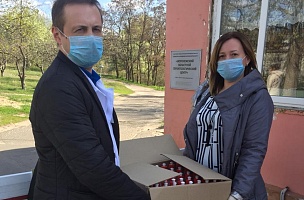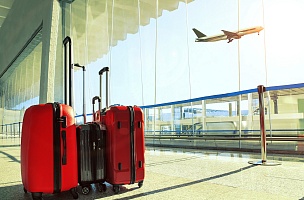The latest in a series of reviews of recent
studies on the economy in light of COVID-19 have been published on the Roscongress
Information and Analytical System and on the Anticrisis plan:
global best practices portal.
Interestingly, many of these problems were being discussed long before
the coronavirus pandemic gripped the world. This allowed analysts at the
Roscongress Foundation to illustrate key report findings with the use of video
clips from Roscongress events including the St. Petersburg International
Economic Forum, Russian Investment Forum and Russia House in Davos.
A study produced by the International
Monetary Fund (IMF) entitled Options
to Support Incomes and Formal Employment During COVID-19
analyses the options for mitigating the effects of the pandemic on employment.
According to the authors, the priority will be saving jobs and providing income
for employees who have lost their jobs, which requires short-term subsidies and
a fallback policy. The subsidies may be provided under a special scheme or as
part of an unemployment benefit system. Moreover, governments should consider
lowering the eligibility requirements for unemployment benefit.
Upon emerging from the crisis (i.e.
when measures to contain COVID-19 are gradually being relaxed) the targeted
employee compensation subsidies aimed at preserving jobs and employee income
will become more effective, suggests the IMF.
Elsewhere, experts at KPMG have prepared a report
entitled COVID-19 and the
airport industry. Most countries across the world have imposed
limitations on air travel due to the sharp decline in the number of passengers,
along with airline payment arrears and the fact that airport tenants are losing
90% of takings, while incomes remain unchanged. These factors, along with
others, are making the airport sector one of the most vulnerable in the face of
the economic crisis caused by the global spread of coronavirus.
Analysts across the world
concur that without state support it will be impossible to overcome the current
crisis. Moreover, a range of states have already freed up amounts equivalent to
11% of GDP to support the economy, of which a large part will be used to
support the airport sector, states the study.
Finally, a report produced by the World Trade
Organization (WTO) entitled E-Commerce, Trade
and the COVID-19 Pandemic notes a growth in e-commerce as consumers are
forced to adjust to quarantine and social distancing measures. In turn, this
presents new global challenges, namely the importance of bridging the digital
inequality gap both within countries and beyond them. According to the authors
of the report, the experience and lessons drawn from the COVID-19 crisis may
give further impetus to global collaboration in the e-goods sector, which could
essentially make the transportation of goods and services easier, reduce the
digital gap and create more comfortable conditions for small businesses. The
WTO Trade Facilitation Agreement should play a large role in this.





